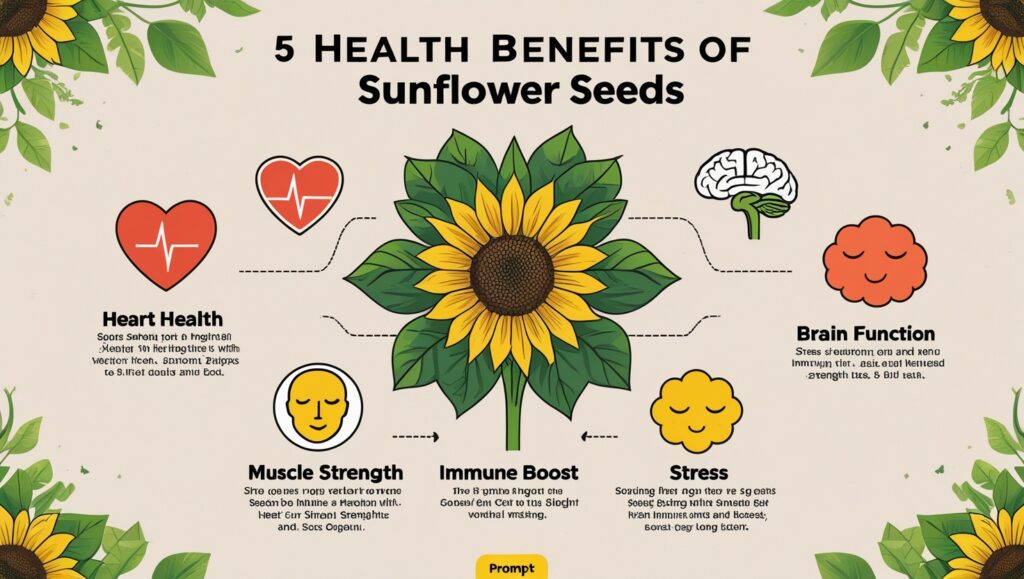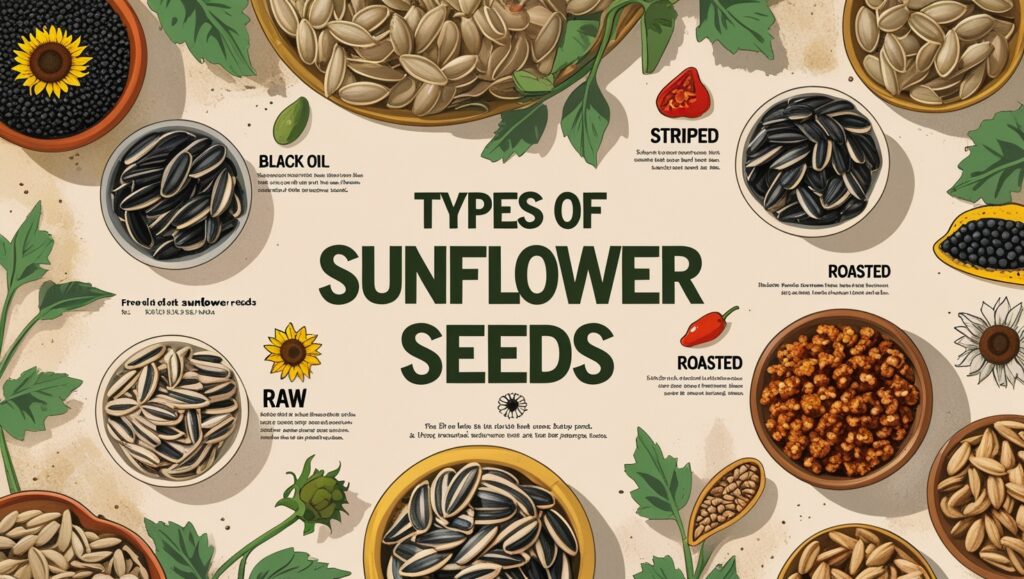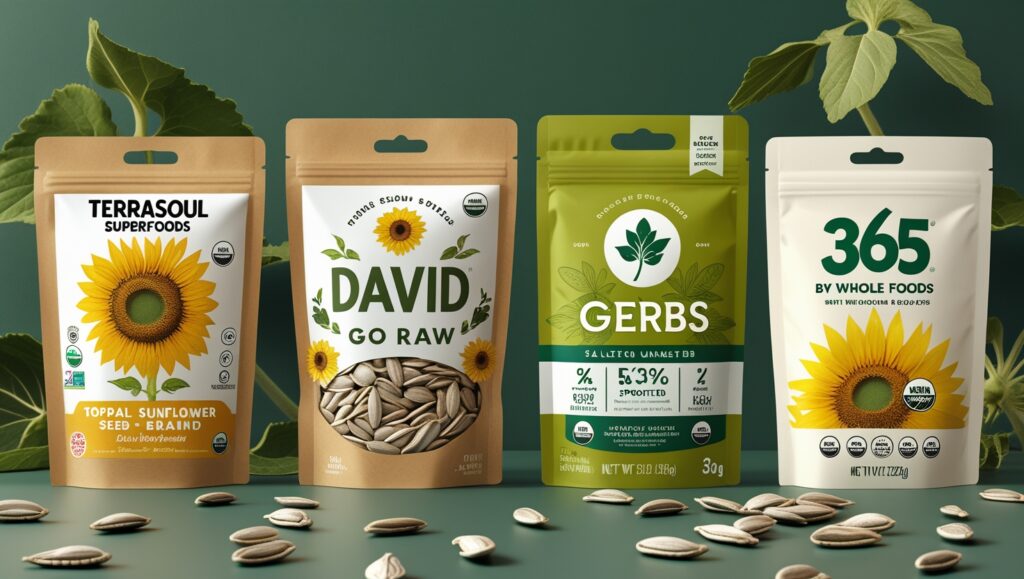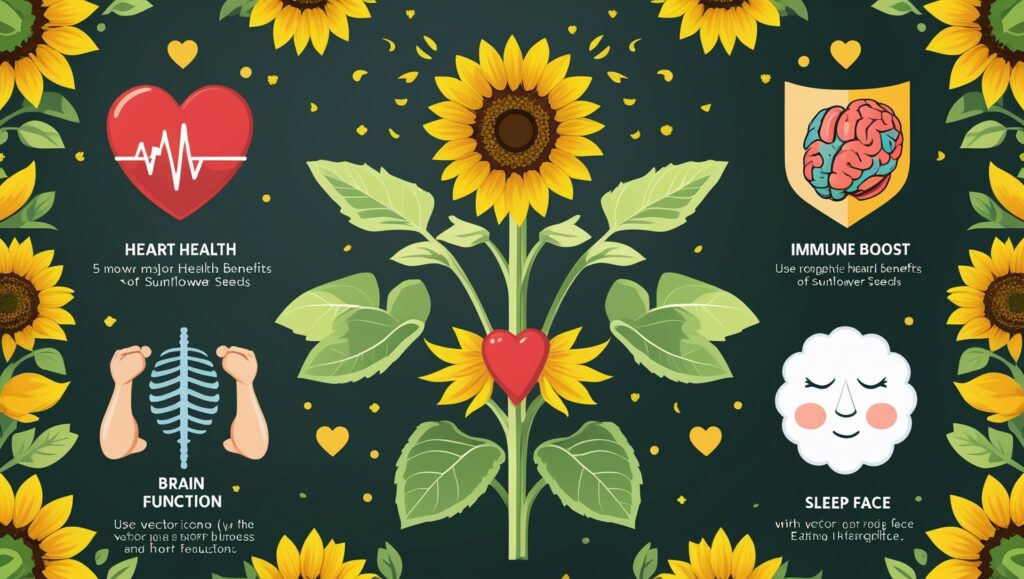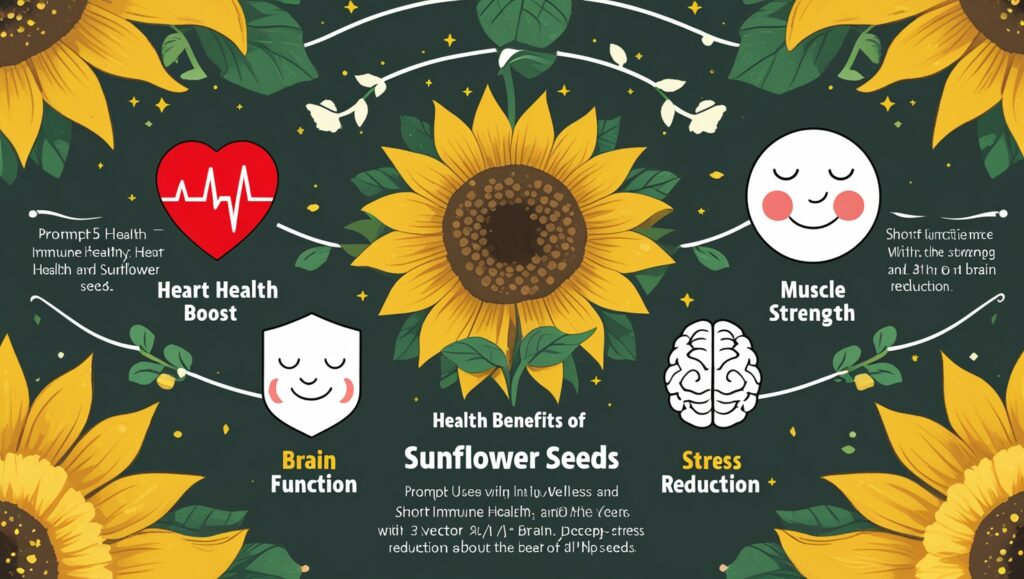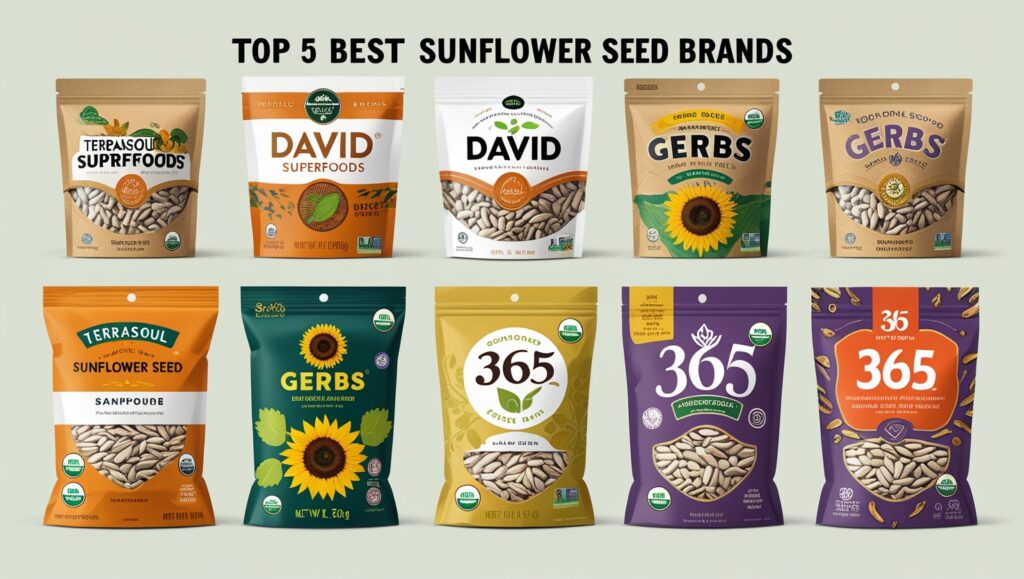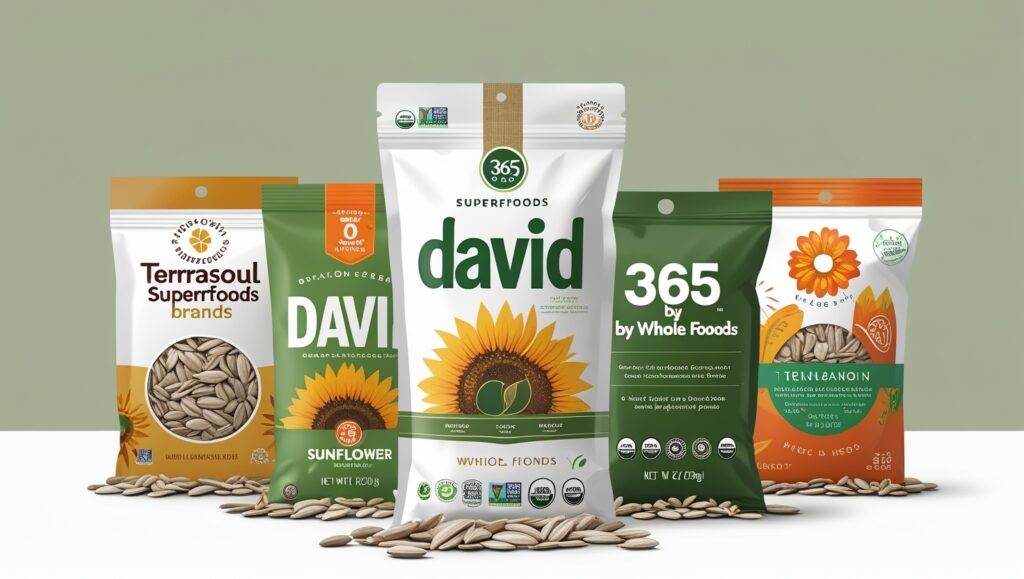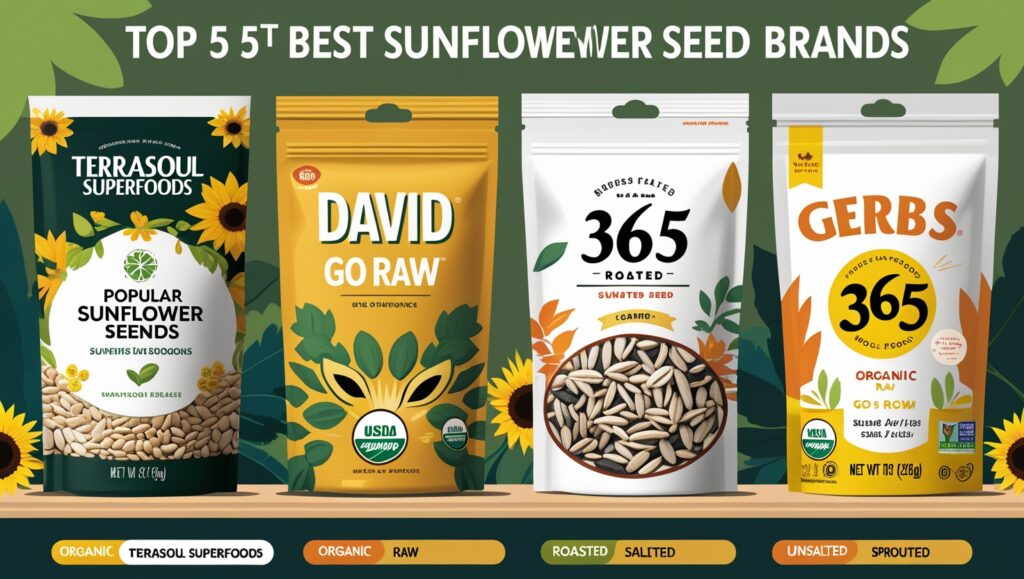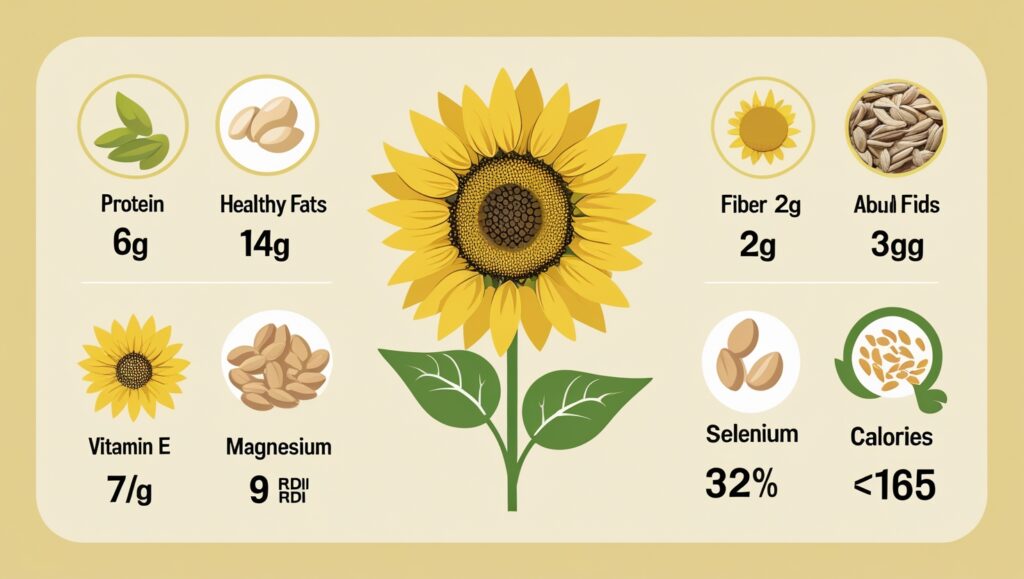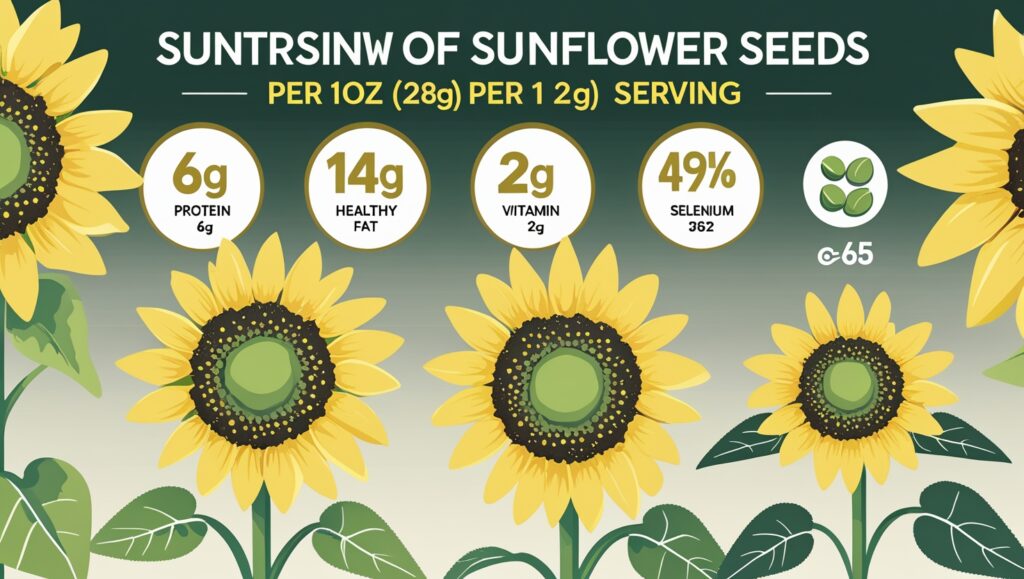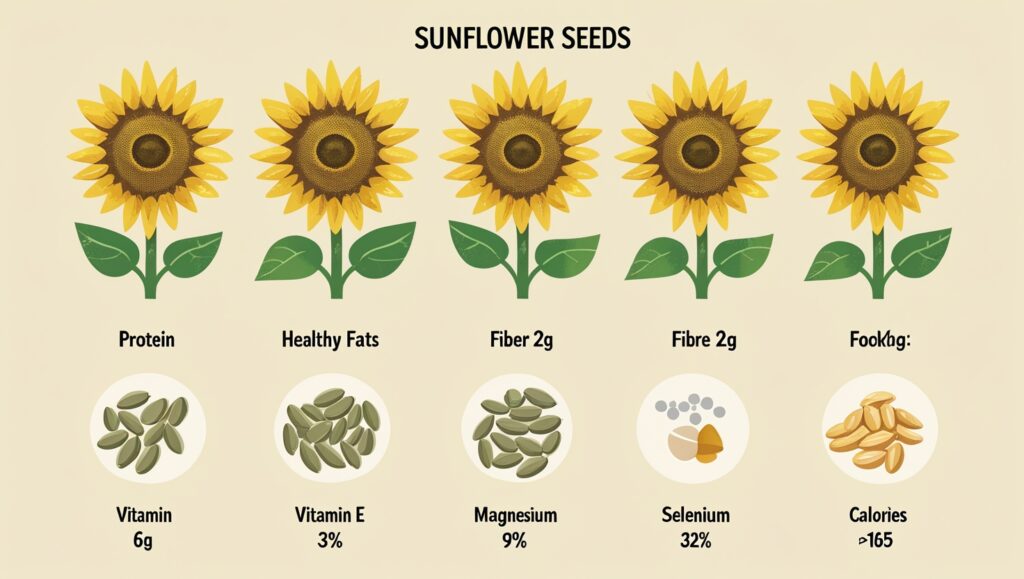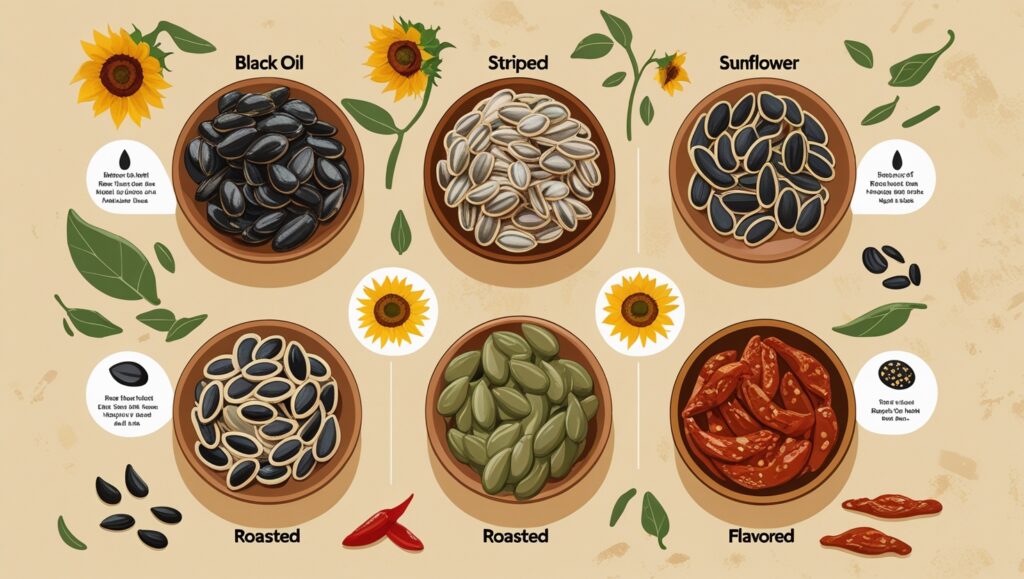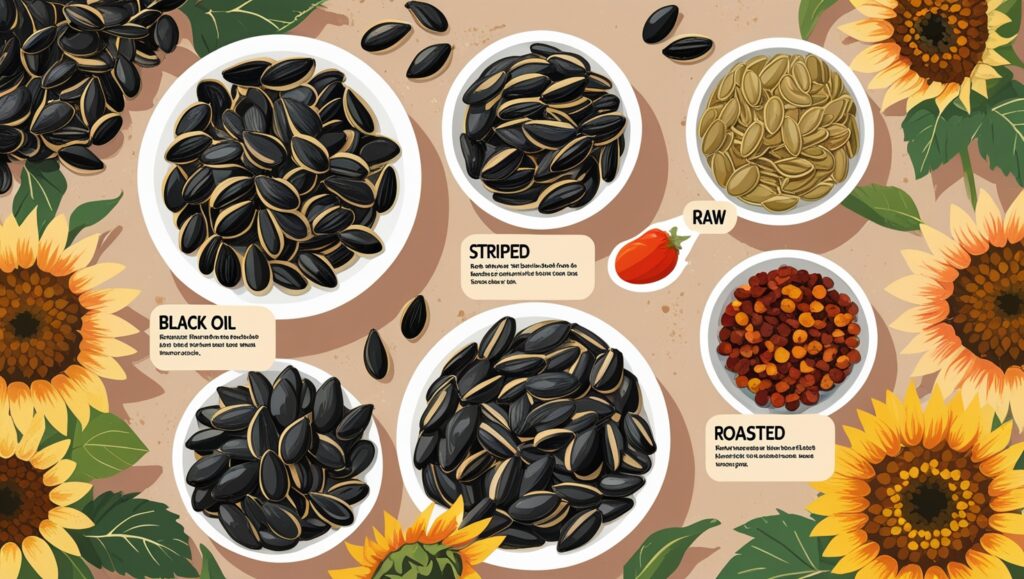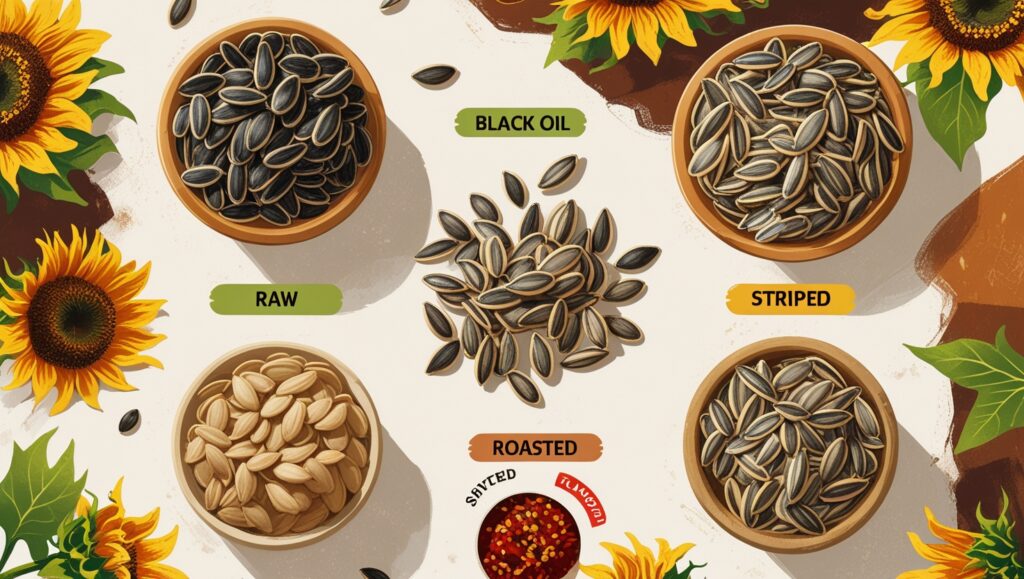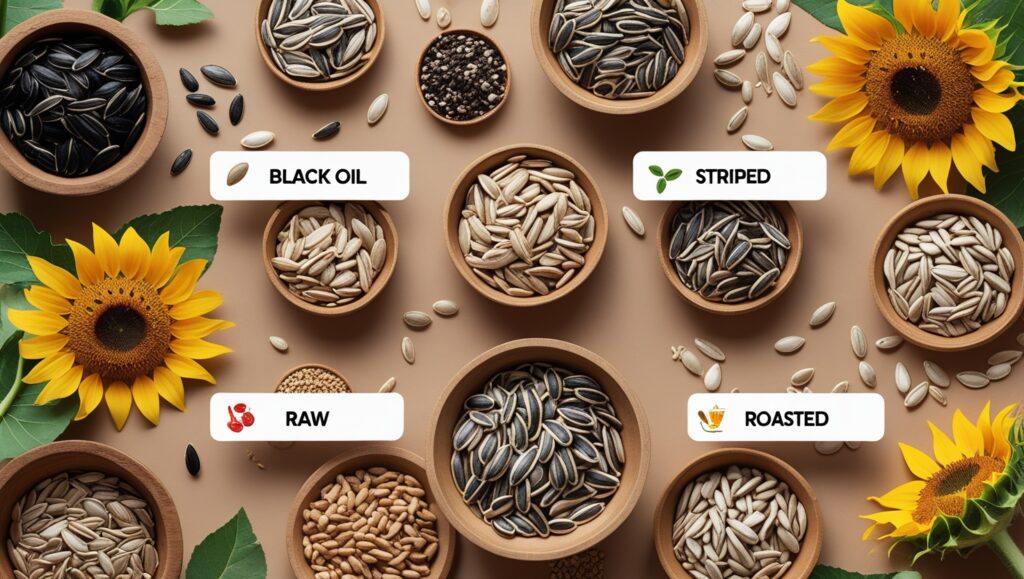Best Sunflower Seeds
If you’re looking for a nutrient-dense snack that satisfies hunger, supports heart health, and boosts energy, the best sunflower seeds are a top contender. These small but mighty seeds are rich in healthy fats, plant protein, vitamins, and antioxidants. From roasted snack packs to raw organic seeds for smoothies and salads, sunflower seeds are versatile and packed with benefits.
Let us explore everything you need to know about choosing, eating, and benefiting from the best sunflower seeds. We’ll also cover types, top brands, nutritional value, and how to incorporate them into your daily routine.
Table of Contents
What Makes the Best Sunflower Seeds?
Not all sunflower seeds are created equal. The best sunflower seeds combine freshness, nutritional content, taste, and responsible sourcing. Here are key factors to consider:
- Origin and Quality: Seeds grown in mineral-rich soil produce a better nutrient profile.
- Processing Method: Look for dry-roasted, unsalted, or minimally processed seeds.
- Organic and Non-GMO: Certified organic seeds are free from pesticides and GMOs.
- Shell or No Shell: Shelled seeds are convenient but in-shell seeds may retain more freshness.
- Flavor Options: From plain to spicy to honey roasted, choose flavors without artificial additives.
Nutritional Value of Sunflower Seeds
Sunflower seeds are loaded with essential nutrients, making them one of the best plant-based snacks around.
Per 1 oz (28g) serving of shelled, dry-roasted sunflower seeds:
- Calories: ~165
- Protein: 6g
- Fat: 14g (mostly unsaturated)
- Carbohydrates: 5g (2g fiber)
- Vitamin E: 37% of the RDI
- Magnesium: 9% of the RDI
- Selenium: 32% of the RDI
Health Benefits of Eating the Best Sunflower Seeds
💖 Heart Health
- Rich in monounsaturated and polyunsaturated fats
- Contains phytosterols that reduce cholesterol absorption
- High in vitamin E, a known antioxidant that protects cardiovascular tissue
🛡️ Immune Boosting
- Zinc and selenium support immune defense
- Vitamin B6 aids in producing infection-fighting white blood cells
💪 Muscle and Bone Strength
- Magnesium helps with muscle recovery
- Calcium and phosphorus support bone health
🧠 Brain Function
- Choline and vitamin E contribute to cognitive performance
- Healthy fats improve mood and reduce inflammation
😌 Stress Reduction
- Magnesium promotes relaxation and better sleep quality
- Tryptophan supports serotonin production
Types of Sunflower Seeds
1. Black Oil Sunflower Seeds
High in oil content, often used for oil extraction and bird feed. Not ideal for snacking.
2. Striped Sunflower Seeds
Commonly sold for human consumption. Available in shelled and unshelled varieties with various flavors.
3. Raw Sunflower Seeds
Unroasted and unsalted. Ideal for smoothies, salads, and nutrient preservation.
4. Roasted Sunflower Seeds
Toasty flavor, may be salted or flavored. Great for convenient snacking.
5. Flavored Sunflower Seeds
Barbecue, ranch, chili lime, and more. Choose low-sodium, preservative-free versions.
Top 5 Best Sunflower Seed Brands (2025 Edition)
- Terrasoul Superfoods Organic Sunflower Seeds – USDA Organic, raw, non-GMO, unsalted.
- David Sunflower Seeds (Original) – Classic in-shell snack, roasted and salted.
- Go Raw Sprouted Sunflower Seeds – Organic, sprouted for better digestion.
- Gerbs Unsalted Sunflower Seeds – Allergen-free, dry-roasted, oil-free.
- 365 by Whole Foods Market – Affordable, organic, lightly salted shelled seeds.
How to Eat Sunflower Seeds: Tips and Ideas
- Add to salads for crunch and nutrition.
- Blend with bananas and oats in smoothies.
- Top yogurt or oatmeal with sunflower seeds and berries.
- Make a trail mix with raisins, almonds, and pumpkin seeds.
- Use in muffins, bread, or homemade energy bars.
- Snack straight from the bag—great for on-the-go.
Sunflower Seeds vs Other Seeds
| Seed Type | Protein | Fat | Notable Nutrient |
|---|---|---|---|
| Sunflower | 6g | 14g | Vitamin E |
| Pumpkin | 7g | 13g | Zinc, Iron |
| Chia | 4g | 9g | Omega-3, Fiber |
| Flax | 5g | 12g | Lignans, Omega-3 |
Storage and Shelf Life
To maintain freshness:
- Store in an airtight container in a cool, dry place.
- Refrigerate or freeze for extended shelf life (up to 6 months).
- Avoid moisture to prevent mold and spoilage.
Signs of spoilage: bitter taste, off-smell, oily residue.
Are There Any Side Effects?
While generally safe, eating sunflower seeds in excess can have side effects:
- Calorie Dense: 1 oz = 160–170 calories.
- High Sodium (if salted): Choose low-sodium options.
- Allergic Reactions: Rare but possible.
- Tooth Damage: In-shell seeds can harm enamel.
FAQs
Are sunflower seeds good for weight loss?
Yes. In moderation, their healthy fats and fiber help curb appetite, making them an excellent snack for weight management.
What is the healthiest way to eat sunflower seeds?
Raw or dry-roasted without added salt or oils is best for health.
Can I eat sunflower seeds daily?
Yes, 1–2 ounces a day is a healthy amount that provides key nutrients.
Are sunflower seeds inflammatory?
No. Their vitamin E and healthy fats may reduce inflammation in the body.
Final Thoughts: Why You Should Choose the Best Sunflower Seeds
From heart health and brain support to muscle recovery and glowing skin, the best sunflower seeds offer far more than a crunchy snack. Their rich nutritional profile and versatility make them easy to add to your daily diet. Just be mindful of quality, flavoring, and portion size.
Start small, go for organic or dry-roasted varieties, and enjoy the health-boosting power of sunflower seeds today.

